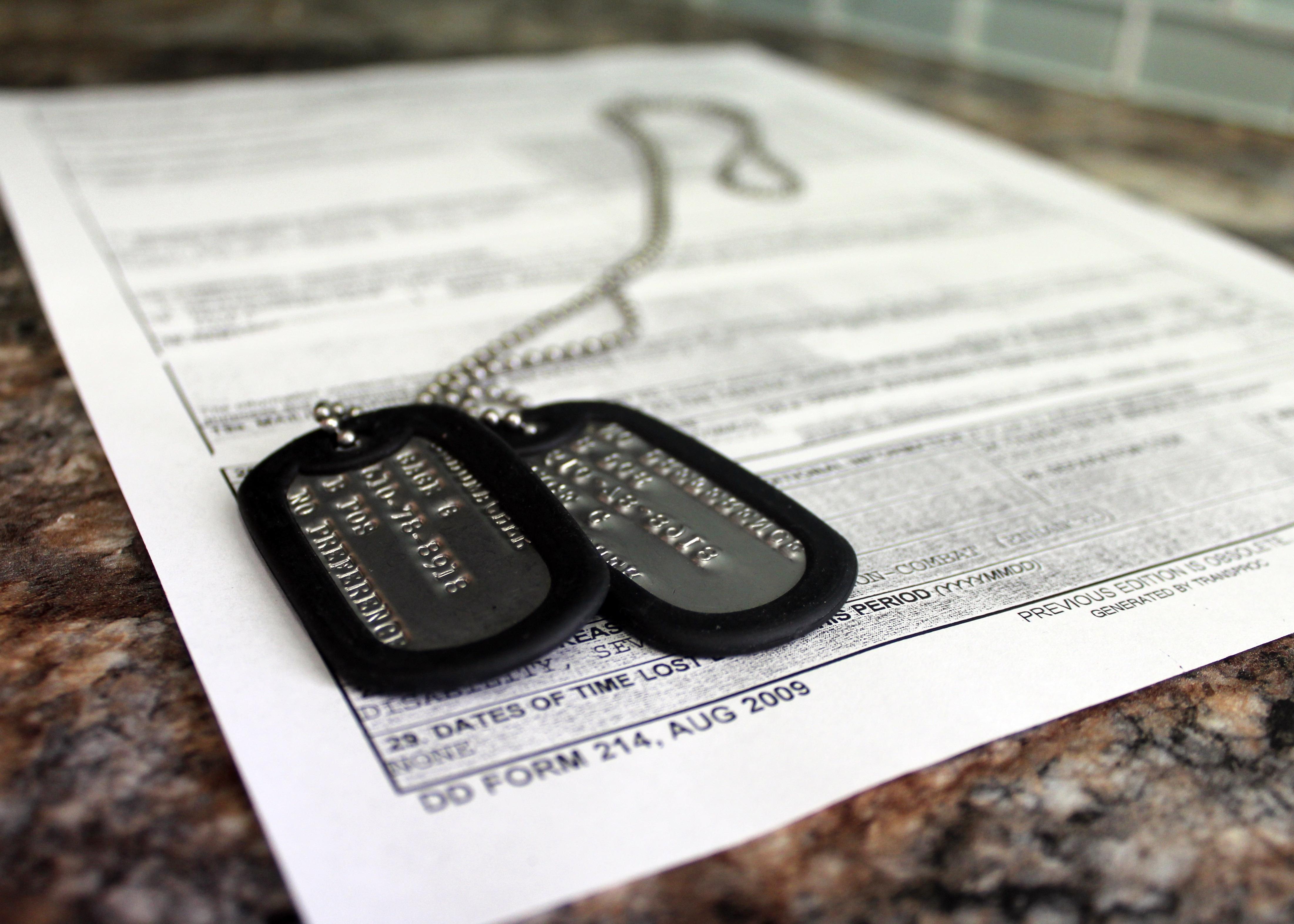https://fb.me/e/26RsIyRNP
SAT, NOV 7 AT 7:00 AM CST
Mobile County Recycling Day Electronics, Scrap Metal & Tires
In this short video from Attorney Winslow Butts she addresses the frequently asked question - "have I worked long enough to qualify for Social Security Disability?"
https://www.iheart.com/content/2020-10-21-dolly-parton-monica-more-team-up-on-breast-cancer-awareness-song-pink/
IHEART.COM
Dolly Parton, Monica & More Team Up On New Song 'PINK' To Benefit Breast Cancer Research | iHeartRadio
A serious injury can keep manufacturers out of work. When can they obtain disability benefits?
GARDBERGLAW.COM
Do I Qualify For Disability Benefits?
https://health.usnews.com/health-care/medicare/articles/using-va-benefits-long-term-care
HEALTH.USNEWS.COM
Using VA Benefits to Pay for Long-Term Care
In this short video, Attorney Winslow Butts talks about the criteria that a widow must meet in order to qualify for the Widow's Disability Benefit.
https://www.cancer.org/healthy/find-cancer-early.html
CANCER.ORG
Find Cancer Early
https://www.military.com/benefits/military-pay/allowances/cola-for-retired-pay.html?utm_source=Sailthru&utm_medium=email&utm_campaign=EBB%2010.14.20&utm_term=Editorial%20-%20Early%20Bird%20Brief
MILITARY.COM
Here's Your 2021 Military Retiree and VA Disability Pay Raise
In October 2020, Social Security Administration announced a 1.3% benefit increase for 2021. This cost-of-living adjustment (COLA) will be effective for Title II beneficiaries of a period of disability and disability insurance benefits for December 2020 benefits that are payable in January of 2021. For SSI beneficiaries, the cost-of-living adjustment will be made for January 2021 but paid on December 31, 2020. https://www.gardberglaw.com/blog/2020/11/cost-of-living-adjustment-for-2021/
#Veterans #VeteransDay
We have the experience and determined focus necessary to help injured office workers and professionals secure disability benefits.
GARDBERGLAW.COM
Support Gaining Disability Benefits
https://www.militarytimes.com/news/pentagon-congress/2020/10/30/check-in-calls-to-new-veterans-could-become-a-permanent-va-program/?utm_source=Sailthru&utm_medium=email&utm_campaign=EBB%2010.30.20&utm_term=Editorial%20-%20Early%20Bird%20Brief
MILITARYTIMES.COM
Check-in calls to new veterans could become a permanent VA program
Children who suffer from disabilities, may be entitled to receive Supplemental Security Income (SSI). If you have questions, please call us for a free case evaluation. There is no fee unless we win your case.
Depression: Supporting a family member or friend
Help a family member or friend dealing with depression get treatment and find resources.
By Mayo Clinic Staff
"Helping someone with depression can be a challenge. If someone in your life has depression, you may feel helpless and wonder what to do. Learn how to offer support and understanding and how to help your loved one get the resources to cope with depression. Here's what you can do.
Learn the symptoms of depression
Depression signs and symptoms vary from person to person. They can include:
Feelings of sadness, tearfulness, emptiness or hopelessness
Angry outbursts, irritability or frustration, even over small matters
Loss of interest or pleasure in most or all normal activities, such as sex, hobbies or sports
Insomnia or sleeping too much
Tiredness and lack of energy, so even small tasks take extra effort
Changes in appetite — reduced appetite and weight loss or increased cravings for food and weight gain
Anxiety, agitation or restlessness
Slowed thinking, speaking or body movements
Feelings of worthlessness or guilt, fixating on past failures or blaming yourself for things that aren't your responsibility
Trouble thinking, concentrating, making decisions and remembering things
Frequent or recurrent mention of death, suicidal thoughts, suicide attempts or suicide
Unexplained physical problems, such as back pain or headaches
For many people with depression, symptoms usually are severe enough to cause noticeable problems in day-to-day activities, such as work, school, social activities or relationships with others. Other people may feel generally miserable or unhappy without knowing why. Children and teens may show depression by being irritable or cranky rather than sad.
Encourage treatment
People with depression may not recognize or acknowledge that they're depressed. They may not be aware of signs and symptoms of depression, so they may think their feelings are normal.
All too often, people feel ashamed about their depression and mistakenly believe they should be able to overcome it with willpower alone. But depression seldom gets better without treatment and may get worse. With the right treatment approach, the person you care about can get better.
Here's what you can do to help:
Talk to the person about what you've noticed and why you're concerned.
Explain that depression is a medical condition, not a personal flaw or weakness — and that it usually gets better with treatment.
Suggest seeking help from a professional — a medical doctor or a mental health provider, such as a licensed counselor or psychologist.
Offer to help prepare a list of questions to discuss in an initial appointment with a doctor or mental health provider.
Express your willingness to help by setting up appointments, going along to them and attending family therapy sessions.
If your loved one's illness is severe or potentially life-threatening, contact a doctor, a hospital or emergency medical services.
Identify warning signs of worsening depression
Everyone experiences depression differently. Observe your loved one. Learn how depression affects your family member or friend — and learn what to do when it gets worse.
Consider these issues:
What are the typical signs and symptoms of depression in your relative or friend?
What behaviors or language do you observe when depression is worse?
What behaviors or language do you observe when he or she is doing well?
What circumstances trigger episodes of more severe depression?
What activities are most helpful when depression worsens?
Worsening depression needs to be treated as soon as possible. Encourage your loved one to work with his or her doctor or mental health provider to come up with a plan for what to do when signs and symptoms reach a certain point. As part of this plan, your loved one may need to:
Contact the doctor to see about adjusting or changing medications
See a psychotherapist, such as a licensed counselor or psychologist
Take self-care steps, such as being sure to eat healthy meals, get an appropriate amount of sleep and be physically active
Understand suicide risk
People with depression are at an increased risk of suicide. If your loved one is severely depressed, prepare yourself for the possibility that at some point he or she may feel suicidal. Take all signs of suicidal behavior seriously and act immediately.
Take action if necessary:
Talk to the person about your concern. Ask if he or she has been thinking about attempting suicide or has a plan for how to do it. Having an actual plan indicates a higher likelihood of attempting suicide.
Seek help. Contact the person's doctor, mental health provider or other health care professional. Let other family members or close friends know what's going on.
Call a suicide hotline number. In the United States, you can reach the toll-free, 24-hour hot line of the National Suicide Prevention Lifeline at 1-800-273-TALK (1-800-273-8255) to talk to a trained counselor. Use that same number and press "1" to reach the Veterans Crisis Line.
Make sure the person is in a safe environment. If possible, eliminate things that could be used to attempt suicide. For example, remove or lock up firearms, other weapons and medications.
Call 911 or your local emergency number immediately if the person is in danger of self-harm or suicide. Make sure someone stays with that person at all times.
Stay alert for warning signs of suicide
Learn and stay alert for common warning signs of suicide or suicidal thoughts:
Talking about suicide — for example, making statements such as "I'm going to kill myself," "I wish I were dead," or "I wish I hadn't been born"
Getting the means to attempt suicide, such as buying a gun or stockpiling pills
Withdrawing from social contact and wanting to be left alone
Having mood swings, such as being emotionally high one day and deeply discouraged the next
Being preoccupied with death, dying or violence
Feeling trapped or hopeless about a situation
Increasing use of alcohol or drugs
Changing normal routine, including eating or sleeping patterns
Doing risky or self-destructive things, such as using drugs or driving recklessly
Giving away belongings or getting affairs in order when there's no other logical explanation for why this is being done
Saying goodbye to people as if they won't be seen again
Developing personality changes or being severely anxious or agitated, particularly when experiencing some of the warning signs listed above
Provide support
Remember that your loved one's depression isn't anyone's fault. You can't fix the person's depression — but your support and understanding can help.
What you can do for your loved one:
Encourage sticking with treatment. If your relative or friend is in treatment for depression, help him or her remember to take prescribed medications and to keep appointments.
Be willing to listen. Let your loved one know that you want to understand how he or she feels. When the person wants to talk, listen carefully, but avoid giving advice or opinions or making judgments. Just listening and being understanding can be a powerful healing tool.
Give positive reinforcement. People with depression may judge themselves harshly and find fault with everything they do. Remind your loved one about his or her positive qualities and how much the person means to you and others.
Offer assistance. Your relative or friend may not be able to take care of certain tasks well. Give suggestions about specific tasks you'd be willing to do, or ask if there is a particular task that you could take on.
Help create a low-stress environment. Creating a regular routine may help a person with depression feel more in control. Offer to make a schedule for meals, medication, physical activity and sleep, and help organize household chores.
Locate helpful organizations. A number of organizations offer support groups, counseling and other resources for depression. For example, the National Alliance on Mental Illness, employee assistance programs and many faith-based organizations offer help for mental health concerns.
Encourage participation in spiritual practice, if appropriate. For many people, faith is an important element in recovery from depression — whether it's involvement in an organized religious community or personal spiritual beliefs and practices.
Make plans together. Ask your loved one to join you on a walk, see a movie with you, or work with you on a hobby or other activity he or she previously enjoyed. But don't try to force the person into doing something.
What you can do for yourself:
Learn about depression. The better you understand what causes depression, how it affects people and how it can be treated, the better you'll be able to talk to and help the person you care about.
Take care of yourself. Supporting someone with depression isn't easy. Ask other relatives or friends to help, and take steps to prevent becoming frustrated or burned out. Find your own time for hobbies, physical activity, friends and spiritual renewal.
Finally, be patient. Depression symptoms do improve with treatment, but it can take time. Finding the best treatment may require trying more than one type of medication or treatment approach. For some people, symptoms quickly improve after starting treatment. For others, it will take longer."
If you are suffering from mental health and are unable to work due to your condition, you may consider filing for Social Security Disability (SSDI/SSI). Have you been diagnosed by a doctor or health care professional? Are you taking your medication as directed? Call us for a free case evaluation. You can reach us at 251-343-1111.
“Assisting those who file for disability is more than a job, I consider it a calling.”
By Adrian Bates
I hope you have had a good week. I wanted to close my week by sharing a few thoughts of gratitude. There is nothing like the feeling when a Social Security disability client gets awarded their claim and I get to talk with them about it. I am moved every time I speak with a client. My heart leaps when they express joy, hope and gratitude. I know the person I helped has gained back a sense of livelihood and independence. The feeling I get when the case is won and I talk with my client does not change, no matter how long I have worked in this field.
The Social Security laws change, but the gratitude does not change. I value each simple “thank you”. Sharing in the success with my clients only makes me work harder and strive to obtain clients their past due benefits, monthly benefits, and applicable insurance whether Medicare or Medicaid. The clients are used to working and providing for themselves. Then something happens to their mental or physical health. They are no longer able to work. The clients need help, and they deserve it. Assisting those who file for disability is more than a job, I consider it a calling.
People need medical care and are not able to afford it. They need life sustaining medications for heart disease, diabetes, arthritis, or other illnesses. People need insurance so they
can seek the medical care they require. I am often told that that the monetary value of their disability award is not as important as the medical insurance.
I know filing for disability can be overwhelming, especially when a client must keep up with many medical appointments and just trying to get through each day. In addition to the mounds of documents and forms, the SSA office is closed to in person appointments because of COVID19. Do not get discouraged. Many people have been denied Social Security multiple times. If you are thinking about filing for Social Security Disability benefits or have been denied, SSDI or SSI, call for a free consultation. Let us discuss what your next step should be to regain your independence and live your best life.
There is no fee unless we win. Call 251-343-1111 for a free consultation. I would love a chance to assist you. My name is Adrian and I have worked in the legal field since 2009.
According to a press release from the Davidson County Office of Veterans Services, the recently approved National Defense Authorization Act for Fiscal Year 2021 includes three new Agent Orange presumptive illnesses for Vietnam veterans.
THE-DISPATCH.COM
New bill adds illnesses for which Vietnam veterans may get disability compensation
Find out what items you will need before you file a Social Security Disability claim.
YOUTUBE.COM
How To File a Disability Claim








